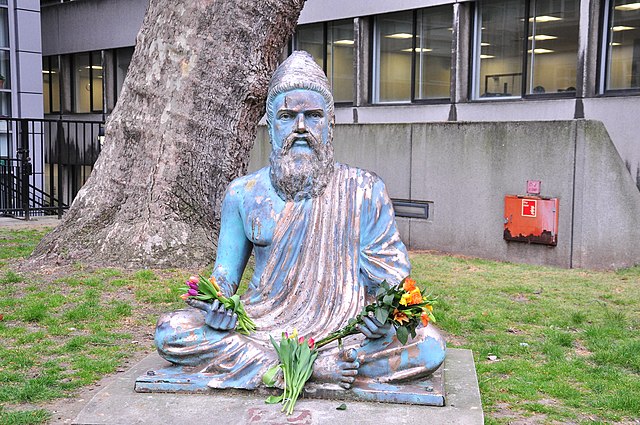Love encompasses a range of strong and positive emotional and mental states, from the most sublime virtue or good habit, the deepest interpersonal affection, to the simplest pleasure. An example of this range of meanings is that the love of a mother differs from the love of a spouse, which differs from the love for food. Most commonly, love refers to a feeling of strong attraction and emotional attachment.
Fraternal love (Prehispanic sculpture from 250 to 900 CE, of Huastec origin). Museum of Anthropology in Xalapa, Veracruz, Mexico
Pair of Lovers. 1480–1485
Grandmother and grandchild in Sri Lanka
Wall of Love on Montmartre in Paris: "I love you" in 250 languages, by calligraphist Fédéric Baron and artist Claire Kito (2000)
A virtue is a trait of excellence, including traits that may be moral, social, or intellectual. The cultivation and refinement of virtue is held to be the "good of humanity" and thus is valued as an end purpose of life or a foundational principle of being. In human practical ethics, a virtue is a disposition to choose actions that succeed in showing high moral standards: doing what is right and avoiding what is wrong in a given field of endeavour, even when doing so may be unnecessary from a utilitarian perspective. When someone takes pleasure in doing what is right, even when it is difficult or initially unpleasant, they can establish virtue as a habit. Such a person is said to be virtuous through having cultivated such a disposition. The opposite of virtue is vice, and the vicious person takes pleasure in habitual wrong-doing to their detriment.
Cardinal and Theological Virtues by Raphael, 1511
Personification of virtue (Ἀρετή) in Celsus Library in Ephesos, Turkey
Valluvar (Statue at SOAS, University of London).
Virtues fighting vices, stained glass window (14th century) in the Niederhaslach Church








